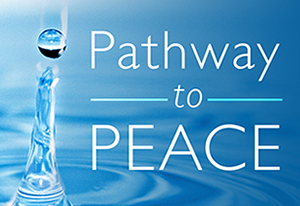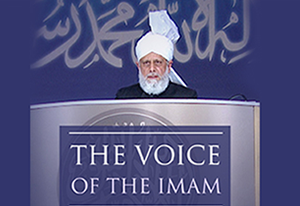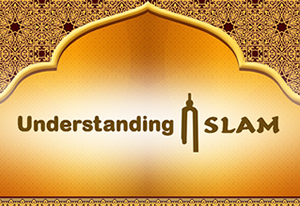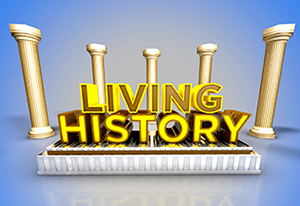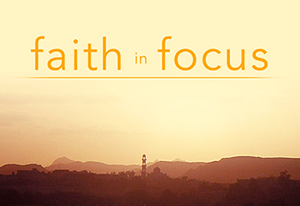Monday
00:00Monday
Two doctors - a GP and a Cardiologist, will be interviewed - first part is related to access to health care in the UK, second part is related to chest pain - when to seek advice?
Learn more01:00Monday
Tune in to hear about the work carried out by Humanity First in the previous year with a special look at the humanitarian work carried out in war torn areas.
Learn more02:00Monday
Experience the international dimension of the annual Jalsa Salana gathering in the UK. Join us in a discussion about staying connected in a global world and the significance of building and maintaining friendships across faith. Amidst increasing divisions and conflicts worldwide, we will explore Huzoor's speech to ladies at the Annual convention, the Bai'at ceremony, and the emotions as the Annual convention draws to a close.
Learn more03:30Monday
Tune in to listen to the translation of the concluding speech by his Holiness Hazrat Mirza Masroor Ahmad (may Allah be his Helper).
Learn more04:30Monday
A brief review of the past three days and the live shows presented, along with key takeaways from the speeches of his holiness Hazrat Mirza Masroor Ahmad (may Allah be his Helper).
Learn more05:00Monday
Tune in to hear about the History of Mosques established by the Ahmadiyya Muslim Community in the UK. From their humble beginnings in 1913 to their progressive development today under the leadership of their founder Hadrat Mirza Ghulam Ahmad (peace be upon him) and his Khulafa [successors]. Hear about how their mosques have become an integral part of communities across the UK as they promote their motto of love for all hatred for none.
Learn more05:25Monday
Episode 5. An address delivered by His Holiness Hazrat Mirza Masroor Ahmad, the Worldwide Head of the Ahmadiyya Muslim Community, at the Ahmadiyya Annual Peace Symposium 2011.
Learn more06:00Monday
Prophet Adam (peace be upon him)- Naeem Osman Memon- Learn about the christian and Islamic interpretation on the life of the first prophet, the Prophet Adam (peace be upon him).
Learn more06:30Monday
Tune is to hear recitation of the Holy Qur'an, Chapter 3 Verse 148-168. Recitation of the Holy Qur'an is by Maulana Feroz Alam.
Learn more07:00Monday
Wake up to the Breakfast Show and catch up with the latest news stories.
Learn more09:00Monday
Series 2. Episode 5. Death of Jesus according to the Holy Bible. Tune in to learn about the basic teachings of Islam. Tahir Selby is joined by Farhan Ali (a new convert from a Shi'ite background) and Stuart Chatto (a new convert from a Christian background) to discuss about Ahmadiyyat, the true Islam, in response to our Khalifah's desire that every Ahmadi Muslim should fully understand why they are an Ahmadi Muslim and what are the claims of the Promised Messiah (a.s)? In this programme they will discuss whether the Holy Bible states that Jesus died on the cross or not.
Learn more10:00Monday
Episode 9. Golden Age of Islamic Civilisation. Dr. Muhammad Iqbal, Amjad Hussain and Arif Ahmad explore the rise and great achievements of the Muslim civilisation.
Learn more11:00Monday
Episode 111. Significance of Friday in Islam What is Salat al-Jumu’ah? And what is the significance of Friday in Islam? This programme will look to answer these questions by considering its meaning, what the performance of the obligation itself entails, what the Holy Qur’an commands and then what Sunnah and Hadith teach us about this special day.
Learn more12:00Monday
A chance to listen to a repeat of a live news discussion programme recorded on 20th July 2024.
Learn more14:00Monday
Repeat of a live interactive show recorded on 14th January 2024. Synopsis: The new year is often a time where people aim to form new habits in the form of new year resolutions. This process of reflecting, introspecting, and establishing better habits is fundamental in Islamic philosophy. In this episode we look at the latest thinking from psychologists on habits and uncover how it is perfectly in line with Islamic teachings’ 1,400 years ago. Through examining practices like the 5 daily prayers, fasting in Ramadhan and recitation of durood we will explore Islam’s deep understanding of human nature and its practical teachings for self-improvement. Presenters: Arif Khan & Sufyan Farooqi
Learn more15:00Monday
Episode 2. In Islam the hijab is an act of worship and obedience to the commandments of Allah, however the Western world has an awkward relationship with it and the Muslim women that choose to wear it. In secular society it has become both politicised and commodified. We explore the socio-politics of the hijab and ask what inspires Muslim women to choose to wear it? How/why has anti-hijab legislation developed in Europe and what impact does this have on Muslim women? How is the hijab represented in the media, is this a fair representation and how do Muslim women feel about how their religious act is portrayed in society?
Learn more16:00Monday
Join in the debate of the day in this live interactive discussion programme. No Show
Learn more18:00Monday
Episode 112. Religion and Health Specific health outcomes are affected by belief in religion e.g. cardiovascular health, muscular health, mental health and even mortality. Many studies have examined this relationship and interest in this area is growing. Studies have investigated religious emotions and health and found that religious emotions, such as humility, forgiveness, and gratitude confer health benefits. We discuss known psychological, social, behavioural, and physiological mechanisms by which religion may exert effects on physical and mental health and examine research that suggests religion can have a negative impact on health. We also discuss what the Quran says on the topic.
Learn more19:00Monday
Repeat of a live interactive show recorded on 4th February 2024.
Learn more20:00Monday
Episode 4. An address delivered by His Holiness Hazrat Mirza Masroor Ahmad, the Worldwide Head of the Ahmadiyya Muslim Community, at the Ahmadiyya Annual Peace Symposium 2010.
Learn more20:40Monday
Islam's response to contemporary Issues- Hadhrat Mirza Tahir Ahmad: In this episode learn about the life of the fourth successor and Khalifa of the Ahmadiyya Muslim Community and what Islam teaches us about the true meaning of democracy.
Learn more21:00Monday
In this episode of Around the Table: Wolf in sheep's Clothing Special Episode 4, we look at the reasons for the establishment of the Ahmadiyya Muslim community, what difference it has made in the world and what it aims to achieve. We then discuss its current leadership and conclude the series by defining who the real "Wolf in sheep's clothing is".
Learn more22:00Monday
A chance to listen to a repeat of a topical discussion programme recorded on 25th July 2024.
Learn more
